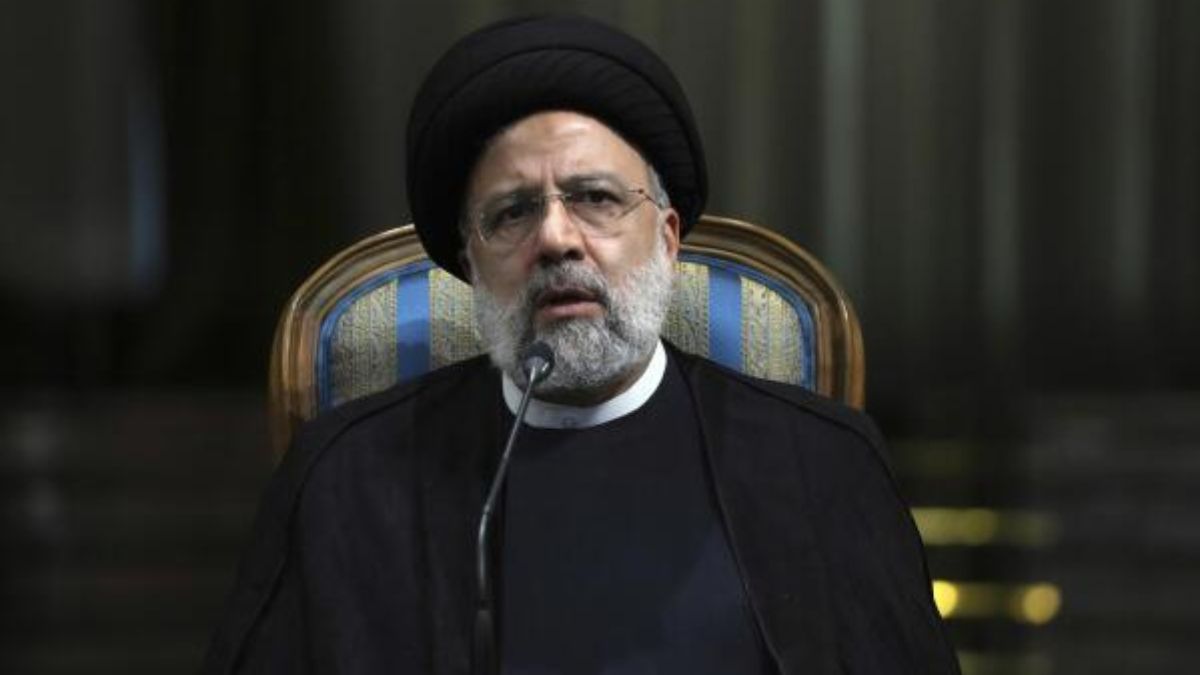A major tragedy struck Iran after a helicopter carrying Iranian President Ebrahim Raisi and the country’s Foreign Minister Hossein Amir-Abdollahian crashed in a fog-covered mountain launching an all-out rescue operation.
Rescuers are searching in the dark for the helicopter that crashed in northern Iran on Sunday. Both Raisi and Abdollahian still remain missing with many presuming that the Iranian leader died in the crash.
The reports of aircraft crashing in the region came early afternoon. It was stated that the helicopter crashed in Iran’s East Azerbaijan province, sparking a massive search effort. While dozens of rescuers reported to the spot immediately, military drones are also being used to help with the rescue efforts.
As the hunt for the Iranian president continues, here’s a look at the controversial life and legacy of Ebrahim Raisi.
Who is Ebramhim Raisi?
The hard-line religious cleric was born in the eastern city of Mashhad in 1960 to a devoutly religious family which was highly influenced by the fervour of Iran’s 1979 Islamic Revolution.
At a very early stage of his career, Raisi was touted as a protégé of Ayatollah Khamenei and eventually climbed the ranks of the judiciary serving as the prosecutor in several cities.
Raisi eventually rose to one of the most powerful roles in government: head of the judiciary. There he managed to defend the ruling regime while persecuting the dissenters.
During his tenure as the head of the judiciary, several human rights groups have linked him to politically motivated executions and unjust imprisonments. He was also accused of being part of a small committee that ordered the executions of thousands of political dissidents in 1988.
Impact Shorts
More ShortsWhen asked about this allegation, Raisi said: “If a judge, a prosecutor has defended the security of the people, he should be praised. … I am proud to have defended human rights in every position I have held so far.”
In 2019, way before he became Iran’s president, the US Treasury imposed sanctions on Raisi for being a political appointee of the Iranian Supreme Leader Ali Hosseini Khamenei.
Raisi’s turbulent run as the country’s president
The 63-year-old was elected as the president of Iran in 2021. It is pertinent to note that during his tenure, Iran has experienced some of its largest antigovernment protests and severe economic downturn. Under his tenure, the tensions between Iran and Israel also reached an all-time high.
In the 2021 presidential elections, he defeated his predecessor, Hassan Rouhani, a relatively moderate leader. The result handed crucial political power and leadership back to hard-liners.
What makes Raisi different was the fact that while Rouhani’s government signed the 2015 nuclear accord with world powers including the United States, his successor deplored the idea of engaging with the West and especially the US diplomatically.
Raisi also inherited the country which was facing a major pandemic, unrest, economic sanctions and flashes of anti-government protests. However, things went downhill when a 22-year-old Iranian woman died in judicial custody.
The Mahsa Amini uprising
The death of Mahsa Amini in September 2022, triggered a nationwide protest with many Iranian women standing up against the country’s draconian hijab laws.
The anti-hijab protests were touted as the most serious challenge the Iranian regime witnessed since its establishment in 1979. Thousands of Iranians, led by women and young people, mobilized to voice discontent over repression and economic neglect.
The protests also garnered international attention with slogans of “Woman, Life, Freedom,” taking over the entire world. The Raisi government on the other hand responded to the uprising in the most gruesome way possible.
The Iranian security forces not only brutally killed hundreds of dissenters, they also made several arrests. Not only this, the country’s judiciary is still releasing execution orders for those who took part in the protests.
Hence, it was no surprise that when the reports of the helicopter crash started to make headlines, several Iranian dissenters celebrated the news.
Tensions with Israel
Under Raisi’s tenure, Iran’s already struggling relations with Israel hit rock bottom. The ongoing Israel-Hamas war added fuel to the fire with several Iran-backed militant groups including Hamas launching attacks on Israel.
The tensions between the two Middle Eastern nations escalated in April when Iran made its first direct military assault on the Jewish state, launching more than 300 missiles and drones.
The Iranian authorities note that the attack was in retaliation to an alleged Israeli airstrike on the country’s embassy in Damascus that killed several Iranian commanders.
What happens if Raisi dies?
While rescuers are still looking for the missing Iranian president, many believe that he might have died due to the fatal crash. This begs the question about what happens when Raisi dies.
According to Article 131 of the Islamic Republic’s constitution, if a president dies in office the first vice president will take over. However, the country’s supreme leader will have the final say on the matter. Dr Mohammad Mokhber is currently holding the post of Iran’s first vice president.
Following the appointment, a council consisting of the first vice president, the speaker of parliament and the head of the judiciary is obligated to arrange elections for the new president within the maximum period of 50 days. With Raisi’s whereabouts being unclear, the fate of Iran’s leadership remains uncertain.
With inputs from agencies.
)